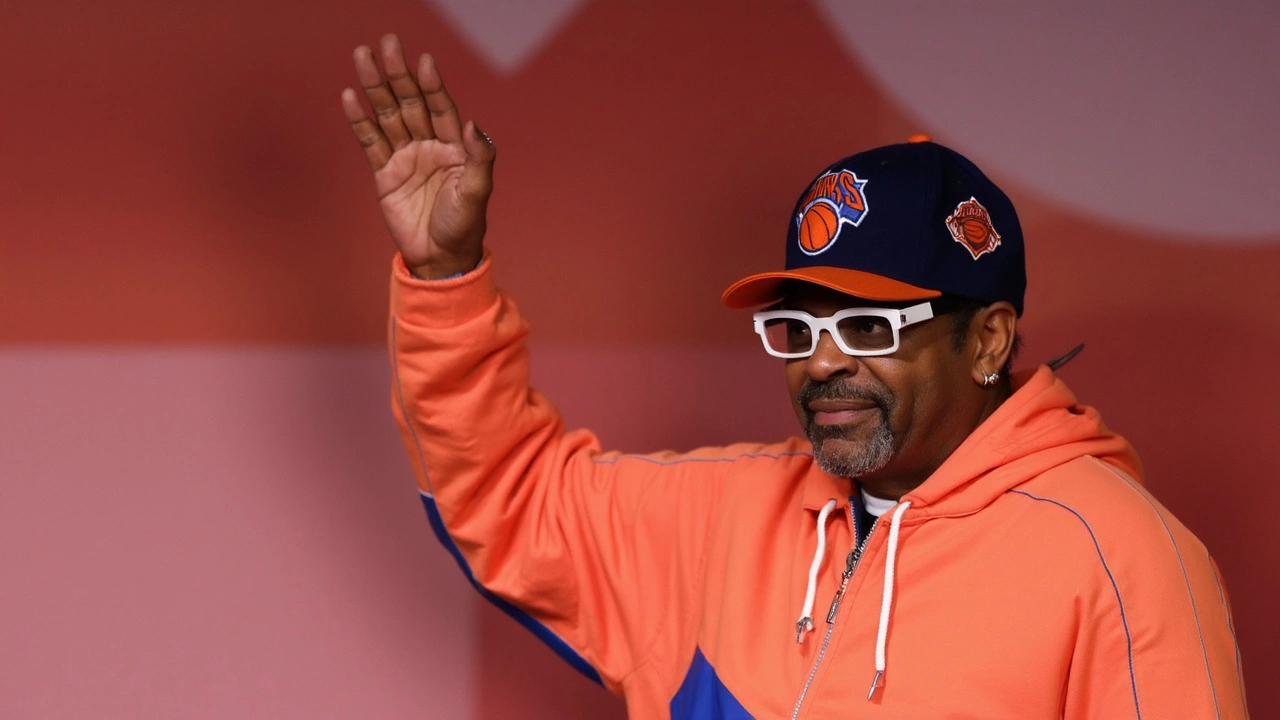Spike Lee Puts Trump’s America Under the Magnifying Glass at Cannes
It’s not every day a movie premiere turns into a pointed critique of political leadership, but that’s exactly what happened when Spike Lee stepped up at the 2025 Cannes Film Festival. While introducing his latest film, Highest 2 Lowest, Lee wasted no time making headlines—he bluntly questioned what ‘American values’ even mean with Donald Trump back in the White House. Lee didn’t dance around the issue. ‘I don’t know how we can talk about American values considering who the president is,’ he told an attentive room. The comment landed with the kind of weight that makes even seasoned journalists perk up.
One hot-button topic Lee tackled was Trump’s surprising idea to slap 100% tariffs on films shot outside the U.S. For anyone in the movie business, that’s a head-scratcher. Lee argued these tariffs would not only dim America’s creative edge but also cut into jobs across the industry. ‘The guy just said he wanted to put a tariff on every film that shot… I don’t know how that’s going to work,’ Lee remarked. Behind the soundbite, there’s a real worry among filmmakers and crew who could see their livelihoods threatened if it became more expensive or just plain harder to make movies outside U.S. borders.
Bringing New York’s Soul to the Screen
For Lee, place isn’t just a backdrop; it’s a character all its own. He’s fiercely loyal to New York, insisting it brings a unique ‘vibe’ and ‘energy’ no other city offers. Even when recounting his 1989 classic Do the Right Thing, Lee shared that the film was nearly shot in Baltimore, but he pushed back. ‘It just wouldn’t have been the same’, he said, underlining his belief that big cities shape the narrative in ways that are hard to replicate elsewhere.
His new film, Highest 2 Lowest, channels the spirit of Japanese director Akira Kurosawa, with a twist. Instead of following Kurosawa’s original quiet and submissive lead, Lee gave actor Jeffrey Wright’s chauffeur character room to stand up for himself—no shrinking into the background this time. The movie explores the realities of class, but instead of focusing on outright class war, Lee digs into class awareness and the delicate power plays that shape people’s lives. It’s a nod to the complexity of social dynamics he first played with back in She’s Gotta Have It, which itself was born out of a love for Kurosawa’s Rashomon.
When the topic of social media inevitably came up, Lee kept things nuanced. ‘It’s a medium, not a monster,’ he explained, turning attention away from easy finger-pointing. While social media often gets blamed for everything from political polarization to declining movie ticket sales, Lee made it clear he sees it simply as a tool—one that can be used for better or worse, but not inherently evil.
Lee’s appearance at Cannes wasn’t just about promoting a film. It was about sparking necessary conversations—about politics, creativity, where films get made, and how artists survive when faced with policies that feel designed to keep them down. In a town where glitz usually outshines grit, Lee managed to start a fire that will keep smoldering long after the red carpet is rolled up.
